Search
Remove Ads
Advertisement
Summary 
Loading AI-generated summary based on World History Encyclopedia articles ...
Search Results

Article
The Vikings in Iceland
The medieval sources on the discovery and settlement of Iceland frequently refer to the explorers as “Vikings” but, technically, they were not. The term “Viking” applies only to Scandinavian raiders, not to Scandinavians generally. Some of...

Definition
Medieval Icelandic Government
Early medieval Icelandic government, or Viking Iceland, has been termed an incipient form of democracy or democratic parliamentarism, however, the system was actually nothing like its European counterparts, be they medieval or contemporary...

Article
Christianization of Iceland
The Christianization of Iceland was a smooth transition compared to other Scandinavian countries. While in Norway, Denmark, or Sweden, royal authority played a crucial role in conversion, in Iceland, it was a parliamentary decision, reached...
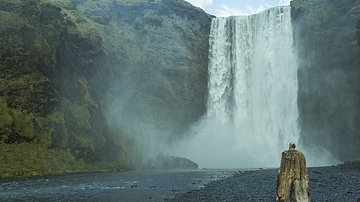
Article
The Legendary Settlement of Iceland
It is said that the early Norse settlers of Iceland in the Viking Age (c. 790-1100 CE) believed it was the home of the gods because of the tale of the creation of the world in Norse religion. In the time before time, the story goes, there...
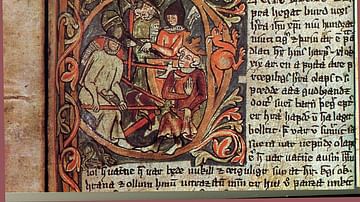
Definition
Saga
The Old Norse word saga means 'story', 'tale' or 'history' and normally refers specifically to the epic prose narratives written mainly in Iceland between the 12th- and 15th centuries CE, covering the country's history as well as Scandinavia's...
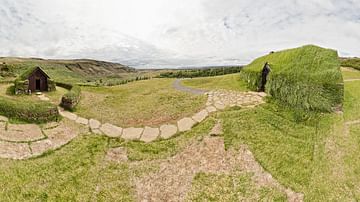
Article
Wealth & Power in Medieval Iceland
Early medieval Iceland, the Viking colony, was a democratic and egalitarian society, but the scarcity of resources and the rough environment created competition, where local chieftains resorted to different tactics to acquire wealth and money...
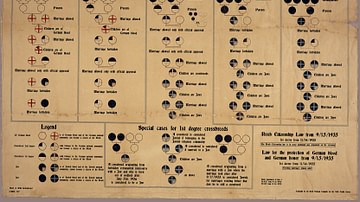
Definition
Nuremberg Laws
The Nuremberg Laws of September 1935 were a set of racial laws which set out a number of restrictions on Jewish people such as depriving them of the right to German citizenship and right to marry non-Jews. Amendments to the laws then defined...
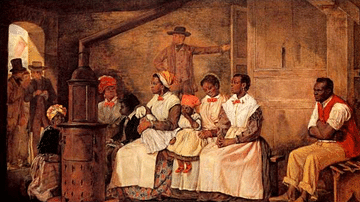
Article
Virginia Slave Laws and Development of Colonial American Slavery
Racialized chattel slavery developed in the English colonies of North America between 1640-1660 and was fully institutionalized by 1700. Although slavery was practiced in the New England and Middle colonies, and Massachusetts Bay Colony passed...
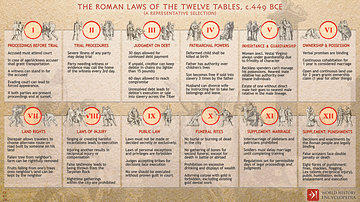
Image
The Roman Laws of the Twelve Tables, c. 449 BCE
An infographic illustrating The Laws of the Twelve Tables were a set of ancient Roman laws put together and displayed in public around 450 BCE. These laws formed the core of the Roman legal system and provided a written code of conduct and...

Image
Book of Nuremberg Laws
A book containing the Nuremberg Laws, a set of race and citizenship laws for Jewish people and German citizens which were created in Nazi Germany in September 1935. Part of an exhibition at the Oslo Center for Studies of the Holocaust and...